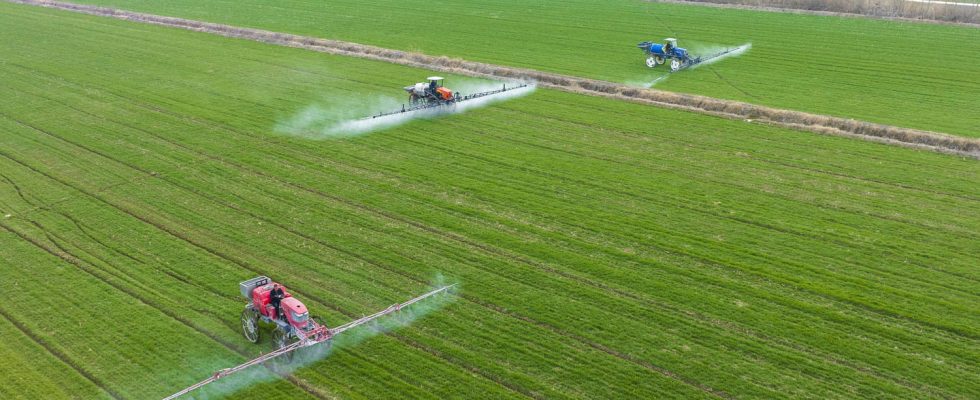An international investigation by investigative media reveals how the European chemical industry supplies Brazil with pesticides banned in the EU. Brazilian plantations are fundamental for players in the food industry like Nestlé.
The giants of the chemical industry and the food industry are once again implicated by a journalistic investigation. The proliferation of bans, led by European health authorities, on pesticides and fungicides because of their risks to human health have led its actors to react. Companies like Bayer, BASF and Syngenta have found a solution not to see their sales decrease: they export their production to Brazil, where its products are authorized.
However, Brazil is a major agricultural land on a global scale. Thus, foodstuffs that have been in contact with these pesticides banned in the European Union end up in the global food circuit. THE Guardiannewspaper member of the investigation, indicates that this type of pesticides and fungicides are “exported and used in farms in Brazil to supply Nestlé”.
Documents from the Brazilian Ministry of Agriculture prove that an epoxiconazole-based fungicide, sold by BASF, was sprayed by plane on fields supplying Nestlé with sugar. The European Chemicals Agency classifies this product as a suspected carcinogen. Syngenta’s Priori Xtra fungicide and Bayer’s Certero insecticide were found on a plantation in São Paulo state thanks to a neighbor’s complaint about the health effects of spraying chemicals on the farm. These products also contain molecules banned in Europe.
An “odious practice”
The UN special rapporteur on toxic substances and human rights, Marcos Orellana, judges this method of “odious practice” with the Guardian and hopes that Europe will act politically on this subject to put an end to it. However, this type of ban is often slow to obtain and a source of great tension given the economic importance of the European companies involved.
However, these pesticides have been banned on European soil because of their link with cancer, reproductive problems and neurodegenerative diseases. The industrialists defended themselves, through CropLife International which represents them: “A non-registration or a withdrawal of registration in the European Union does not automatically mean that a product cannot be used in another country. Pesticides are not automatically ‘more dangerous’ or ‘less necessary’ because they are not authorized in Europe.” These companies rely on the fact that their products had “valid registrations of use in several countries of the OECD”.
Nestlé was also quick to react, since the company mainly sources its sugar from Brazil, for example. One of their spokesperson was quoted by the Guardian: “All of our suppliers must meet Nestlé’s standards for responsible sourcing, including Good Agricultural Practices. We continue to closely monitor the regulatory developments everywhere we operate to ensure full compliance of all our products. Nestlé is not participating in the campaign against the export ban on pesticides and active ingredients banned in the EU.”
The European body in charge of the regulation of pesticides wishes to intervene on this diversion of the prohibition of pesticides but at the moment there is no calendar put in place to apply this will.
